Starting Your Business in Florida
Leading Jacksonville Small Business Attorneys
When starting a business in Florida multiple decisions must be made. Are you starting a new business “from scratch,” so to speak, or are you purchasing an existing business or perhaps you are purchasing a franchise. In any case, you will need to decide what will be the legal structure of your business.
A business lawyer in Jacksonville, Florida can help you make this important decision. Below is general information on some of the more common legal structures for your business.
Call (904) 615-8950 or contact us online to schedule a free consultation on starting your business in Jacksonville, Florida today!
What Is the Best Legal Structure for My Business?
This is a complex decision – your business attorney will discuss with you what you are trying to accomplish by starting the business (acquire real estate or a boat or franchise), who are the people involved (one owner or partners or investors), how do you want decision making to be, and the “what ifs” of any business. Also, when making this decision, your Jacksonville business lawyer will ask you to consider tax consequences and owner’s needs and desires.
Most importantly the legal structure of your business should provide a liability protection for you and serve your tax needs.
Sole Proprietorships
The most basic legal structure for a business is a Florida sole proprietorship. It is not a recommended way to structure your business, simply because “you are the business.” A sole proprietorship does not require any legal documentation, fees, or filings other than state and local business permits. The sole proprietorship is required to register a fictitious name and renew it every five years with the Department of State Division of Corporations. (Florida Statute 865.09). The filing fee required by the Secretary of State is $50.
There are no equity interests that are issued and there are no restrictions. The ownership in the sole proprietorship can bet transferred freely.
The biggest disadvantage of a sole proprietorship is that it offers no protection for the business owner against the business creditors. This means that creditors, such as suppliers or a landlord can sue the business owner personally. The business owner is personally responsible for all debts of the sole proprietorship. The difference with legal structures such as a Limited Liability Company (LLC) or Corporation is that generally speaking, the creditors of the business cannot successfully go after the owner and investors.
S-Corporations
A Florida S-corporation requires Articles of Incorporation to be filed with the Florida Secretary of State and a fee to be paid for that filing. A Corporation will also require an annual report to be filed every year between January and May in order to maintain its existence.
In Florida, an S-corporation offers a favorable tax treatment for closely held (not more than 100 shareholders) corporations under federal and state tax laws. The S-corporation is what is a called a pass through entity, so there is no double taxation, which means you don’t pay tax and then the corporation pays tax as well.
- An S-corporation automatically converts to a C-corporation if it does not meet the requirements of an S-corporation.
- An S-corporation offers liability protection to the owner, so all assets and liabilities can be in the name of the corporation. This means the owner should be signing contracts and leases in the name of the corporation only, and not personally.
- An S-corporation, like a C-corporation, is governed by a board of directors.
- In an S-corporation only one class of shares is permitted (common shares), but differences in voting rights are permitted.
Shares are transferable unless restricted in articles of incorporation, bylaws, shareholder agreement or agreement between shareholders and corporation (Florida Statute 607.0627(1)).
In order to be classified as an S-corporation, the entity must file IRS Form 2553, within two months and 15 days after the beginning of tax year for which you make the election.
It is easier for an S-corporation to convert to a C-corporation than it is for a LLC or Limited Partnership to convert to a C-corporation because an S-corporation automatically converts to a C-corporation if it does not meet the requirements of an S-corporation.
When using an S-corporation as your legal structure, it is very important to keep good corporate records, meaning that your personal accounts must not be commingled with your business accounts. If that separation is not maintained, it can lead to the piercing of the corporate veil.
Our firm has defended clients in situations where there was little separation between personal and business spending, and there was a serious issue as to whether or not corporate protection would be offered. We were able to help them avoid personal liability but we did have to litigate the case.
Limited Liability Company (LLC)
A Florida LLC requires Articles of Organization to be filed with the Office of the Secretary of State. Just like an S-corporation, Florida LLC must file an annual report every year between January and May of each year.
An LLC is a hybrid between a corporation and a limited partnership and provides certain tax advantages over C-corporations. Florida LLC offers great flexibility with the benefits of partnerships when it comes to management of the LLC, and benefits of corporation regarding limited liability.
If your business is an LLC, you can elect to be treated by the Internal Revenue Service (IRS) as an S-corporation, so you can also avoid double taxation.
In 2014, the new Florida Limited Liability Act (Chapter 605 of Florida Statutes) went into effect and starting on January 1, 2015 applies to all LLCs, including those already in existence. The new LLC Act works to accommodate business owners that create LLCs without the assistance of an attorney. It serves as a default statute.
The new Florida LLC Act provides for two types of management: manager-managed, where a designated person – manager – makes decisions on behalf of the LLC, and member-managed LLC, where members vote in proportion of their interest. The new LLC Act provides a lot of flexibility on a variety of topics when it comes to structuring your business, but it is designed as a default statute, keeping in mind that many companies are not set up by lawyers and need something to fall back to. There are many things that can be changed from the default provisions of the statute, and that can be done in your Operating Agreement, except for the non-waivable provisions outlined in the LLC Act.
The LLC membership interest is transferable, in whole or in part, unless it is prohibited or restricted by the operating agreement. The person who receives the membership interest (transferee) does not get the rights of a member except to receive that person’s distributions. (Florida Statute 605.0502).
Florida law provides that members and managers of an LLC are not liable for the debts, obligations and liabilities of the company. (Florida Statute 605.0304).
There are other legal structures that are recognized in Florida, such as a general partnership, a limited partnership, a limited liability limited partnership and others. However we find that most business owners choose a corporation or a Limited Liability Company.
Call a Jacksonville Business Law Attorney for Assistance
Before starting a business you always need to consult with your Jacksonville business attorney and CPA.
- Especially when multiple people are involved
- When family members are going into business
- When there is an investor and a person who will “work” the business so to speak
Call The Law Offices of Kate Mesic at (904) 615-8950 to schedule your initial consultation today.


Our Settlements & Verdicts
Our top priority is to devise customized legal strategies that are tailored to the unique legal needs of our clients, no matter how simple or complicated their situations, might be.
-
Charges dropped Accident-Failed to Give Information and Improper Backing
-
Dismissed Accident-Leaving the Scene, Careless Driving
-
Expunged Allow Minor Alcohol at Open House Party.
-
Charges Dropped Allow Minor Alcohol ot Drugs at Open House Party
-
1 count of battery amended, others dropped Battery
-
Withhold of Adjudication Battery


